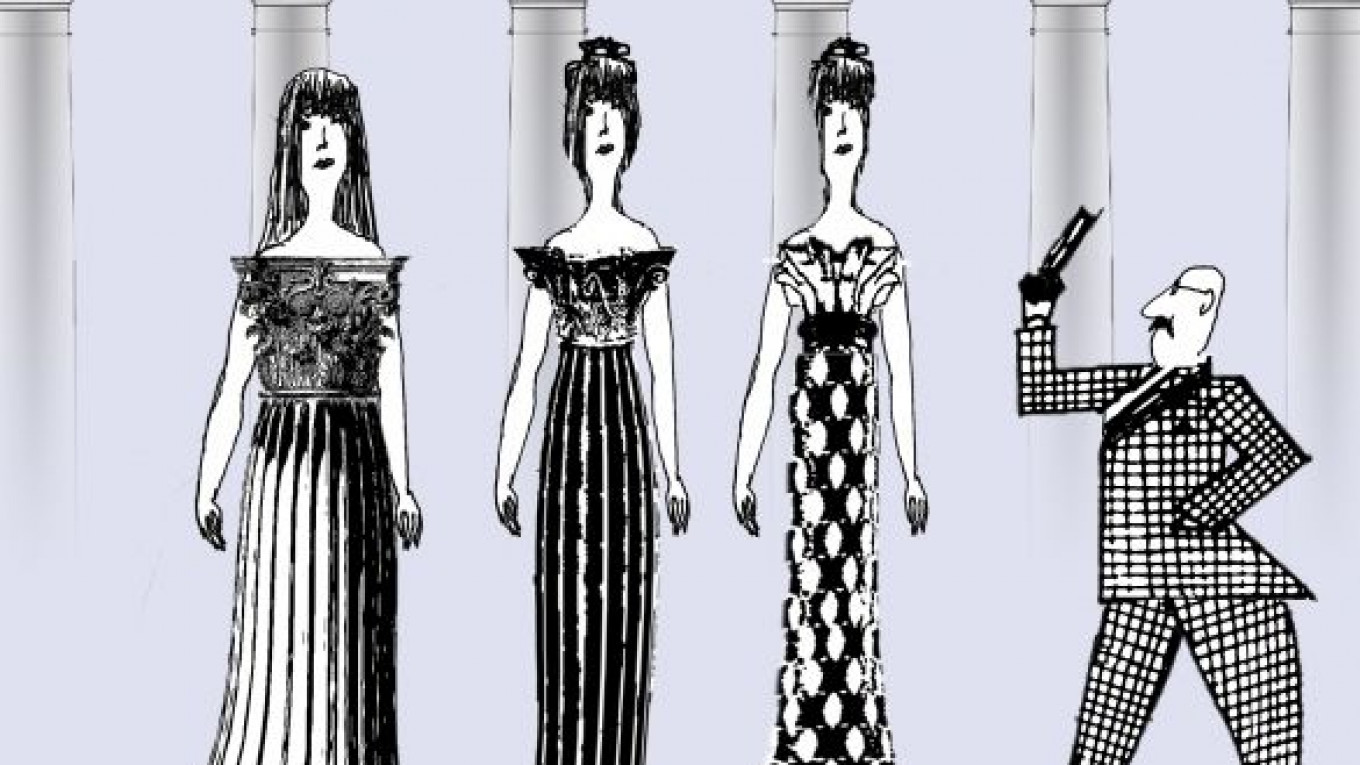Роскошь: splendor, luxury
Is it just me, or does anyone else wonder why Keira Knightly is the go-to Western actress to play Russian beauties? Doctor Zhivago’s Lara, Anna Karenina: really? She may be a beautiful woman, but by the Russian standards of beauty when these works were written, she’s not what you’d call роскошная женщина (a sumptuous woman). Tolstoy would have taken one look at her and thought: подкормить её надо (she needs to get some meat on her bones).
In Russian there are two main words to describe people and objects that are lush, luxurious or splendid. One is the homegrown noun роскошь (splendor, luxury). You might hear this word being bandied about by the government, which is constantly threatening to tax it: Вновь поднимается вопрос о введении налога на роскошь. (The question of introducing a luxury tax is being raised once again.) Here, as I understand it, the difficulty is deciding what exactly is предмет роскоши (luxury good), since it could be argued that a sheered mink coat, Bentley, and коттедж на Рублёвке (villa on Rublyovo-Uspenskoye Shosse) — not to mention a couple of properties abroad — are not luxuries, but simply everyday necessities. I mean, just ask the deputies in the State Duma.
In any case, the noun роскошь and adjective роскошный describe things that are beautiful, expensive and ornate — perhaps even over the top: роскошный дворец (opulent palace), роскошная квартира (luxury or premium-class apartment), or роскошное издание книги (deluxe edition of a book). Even a utilitarian facility might be роскошный: Роскошное бомбоубежище: капитальные, толстые стены, сухо, уютно — не скажешь, что подвал. (It was a luxurious bomb shelter: dry and cozy with substantial, thick walls — you’d never know you were in a cellar.)
Роскошный can also describe a way of life that involves spending lots of money: Он вёл роскошный образ жизни. (He had an extravagant lifestyle.)
And роскошный describes anything that is lush and abundant, from vegetation to curvy body parts. Растение хвастается роскошными цветками. (The plant has sumptuous blooms.) У неё была большая грудь и роскошные округлые бёдра. (She had an ample bosom and voluptuous, rounded hips.) Она — хорошенькая, с роскошными каштановыми волосами. (She’s a pretty little thing with luxuriant chestnut-colored hair.)
Then роскошный can simply refer to anything terrific, high-quality, splendid or wonderful. Погода была роскошной! (The weather was perfect.) Мы роскошно провели вечер. (We had a marvelous evening.)
Another Russian word for high-class people and things is a French import, шикарный (from chicard: chic). Sometimes the word is used to describe something that is fashionable or stylish. Я снимала шикарную квартиру на набережной, с видом на реку. (I rented a posh apartment on the embankment with a river view.) Шикарному мужчине — Schick Protector 3D Diamond. (The Schick Protector 3D Diamond: For the stylish man.)
Of course, notions of chic change over time: Кому нужны теперь эти понастроенные, шикарные — с совковой точки зрения — отели. (Today who needs all those Soviet-style “swanky” hotels they built all over the place?)
Шикарный can also refer to something that is wonderful, worth its weight in gold: Мне канал “Культура” сделал шикарный подарок: показ фильма Михаила Ромма “Убийство на улице Данте.” (The Kultura channel gave me a magnificent gift: a broadcast of Mikhail Romm’s film “Murder on Dante Street.”)
In other cases, шикарный can refer to something elegant: Они придумали шикарный способ разворовывания денег. (They came up with a nifty way of stealing money.) Or шикарный can just mean great. This can get a bit tricky for translators. For example, шикарная собака might mean a trendy breed, a beautifully groomed dog or just a plain old wonderful pooch.
But it gets really tricky when it comes to people. What exactly is роскошная женщина or a роскошный мужчина? How are they different from their шикарные counterparts? My mini survey of native speakers revealed that роскошный and шикарный are incredibly subjective when used to describe people, although there are a few recurring themes. For example, шикарная женщина and шикарный мужчина were usually defined as stylish people, but were often just terrific people. Роскошная женщина was defined as a beautiful woman, usually expensively dressed and coiffed. Some people said the word only applied to her appearance; others — mostly men — said she was splendid in other ways. One older gentleman, bless his heart, had his own criterion: Роскошная женщина? Женщина в портрете Рубенса. (A luscious woman? A women in a portrait by Rubens.)
Роскошный мужчина? Like his female counterpart, he’s handsome and well-dressed. But unlike her, he is also successful, rich, kind and an all-around great guy.
So if someone says, “Он женился на роскошной женщине” (He married a splendid woman), you won’t know what she’s like until you see her. It’s all in the eye of the beholder.
Michele A. Berdy, a Moscow-based translator and interpreter, is author of "The Russian Word's Worth" (Glas), a collection of her columns.
A Message from The Moscow Times:
Dear readers,
We are facing unprecedented challenges. Russia's Prosecutor General's Office has designated The Moscow Times as an "undesirable" organization, criminalizing our work and putting our staff at risk of prosecution. This follows our earlier unjust labeling as a "foreign agent."
These actions are direct attempts to silence independent journalism in Russia. The authorities claim our work "discredits the decisions of the Russian leadership." We see things differently: we strive to provide accurate, unbiased reporting on Russia.
We, the journalists of The Moscow Times, refuse to be silenced. But to continue our work, we need your help.
Your support, no matter how small, makes a world of difference. If you can, please support us monthly starting from just $2. It's quick to set up, and every contribution makes a significant impact.
By supporting The Moscow Times, you're defending open, independent journalism in the face of repression. Thank you for standing with us.
Remind me later.








